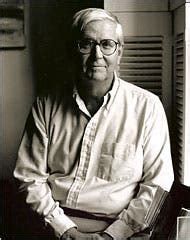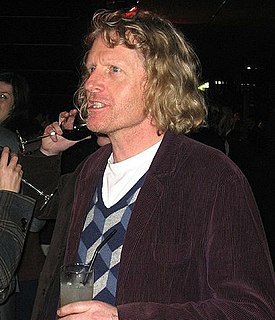A Quote by Whitney Balliett
A critic is a bundle of biases held loosely together by a sense of taste.
Related Quotes
In my view the bundle theorist should say that when a bundle is located somewhere, there is an 'instance' of the bundle there. The instance is entirely constituted by the universals of the bundle. But the bundle and the instance are two distinct entities. Bundles of universals can be multiply located, but their instances cannot, and particulars are instances of a bundle of universals.
Character isn't what we think it is or, rather, what we want it to be. It isn't a stable, easily identifiable set of closely related traits, and it only seems that way because of a glitch in the way our brains are organized. Character is more like a bundle of habits and tendencies and interests, loosely bound together and dependent, at certain times, on circumstance and context.
Probably the reason it's a little hard to break away from the album format completely is, if you're getting a band together in the studio, it makes financial sense to do more than one song at a time. And it makes more sense, if you're going to all the effort of performing and doing whatever else, if there's a kind of bundle.
Even fake news tries to convince us of its reality, but it does so mostly by appealing to your preconceived notions, your shared biases, or your prejudice. How to do the opposite? To create a sense of the real and then challenge your biases. I think that is my favourite aspect of writing, and that is what I've tried to do in 'The Lovers.'
The basic premise of taste, as Stephen Bayley, the cultural critic, said, is that taste is that which does not alienate your peers. Most people want to fit in with their tribe in some way or another, so they give off signals, whether it's with their clothes, their behavior, their car, their whatever, and gain status. Every tribe has a hierarchy, and that's what taste is: it's an unconscious display of who you are, and where you want to be.
Scilurus on his death-bed, being about to leave four-score sons surviving, offered a bundle of darts to each of them, and bade them break them. When all refused, drawing out one by one, he easily broke them, thus teaching them that if they held together, they would continue strong; but if they fell out and were divided, they would become weak.
Those who marry God can become domesticated too - it's just as hum-drum a marriage as all the others. The word Love means a formal touch of the lips as in the ceremony of the Mass, and Ave Maria like dearest is a phrase to open a letter. This marriage like the world's marriages was held together by habits and tastes shared in common between God and themselves - it was God's taste to be worshipped and their taste to worship, but only at stated hours like a suburban embrace on a Saturday night.
































